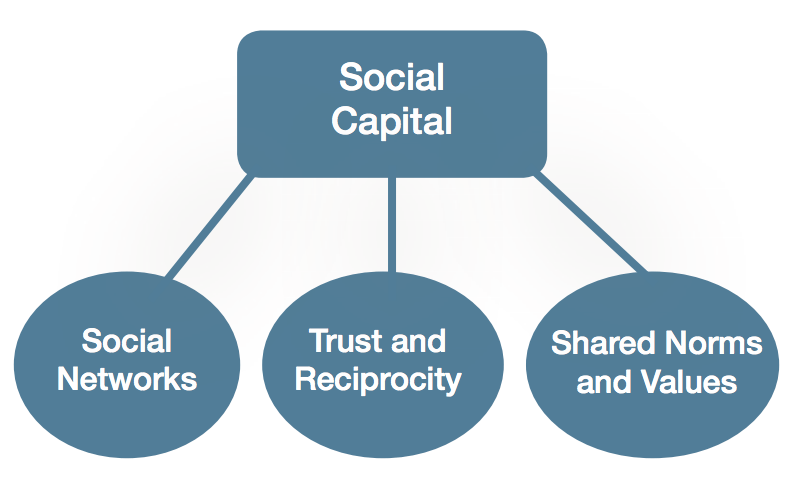This comprehensive review describes what social capital is, how it is measured, and the value it provides to individuals, organisations and communities.
In business as in life, relationships matter.
Recently, the value of relationships has been emphasized in the integrated reporting movement. The guidance provided by the International Integrated Reporting Council (IIRC) suggests that a company’s public report should include information about six forms of “capital.” One of these is social capital, which focuses on “institutions and relationships.”
In South Africa, the first country requiring listed companies to publish integrated reports, understanding and enhancing social capital is a key priority. When a group of South African business leaders met in 2013 to identify sustainable development challenges, they asked: How can we measure and value social capital for business decision-making and reporting?
The need for this research is clear. Despite the importance given to relationships by the IIRC and others, little explicit, structured attention has been given to assessing and improving them.
New Answers on Social Capital
To address such uncertainties, the Network for Business Sustainability South Africa commissioned a systematic review of the rich scholarly literature on social capital. With direction from a Guidance Committee of business leaders, researchers Moses Acquaah, Kwasi Amoako-Gyampah, and Nceku Q. Nyathi reviewed and synthesized 314 studies.
Download the full 96-page Systematic Review for an in-depth look at the research project. Condensed versions of the Systematic Review are available as an Executive Report (16 pages) and Primer (3 pages).
The researchers addressed the following questions:
-
What is social capital? What constitutes the forms and dimensions of social capital?
-
How has social capital been measured in the management literature, as well as in other disciplines?
-
How has social capital been valued in the management literature? How does the value of social capital differ for individuals, organisations, and communities?
-
What should business leaders and organisations bear in mind when making investments in social capital?
The results illuminates what social capital is, how it is measured and the value it provides to individuals, organisations and communities. The Systematic Review includes six case studies from around the world.
Social Capital and Its Value
Social capital refers to relationships between individuals or groups and the resulting ability to secure or obtain resources, knowledge, or information.
These relationships exist inside an organization (e.g. among employees) and outside an organization (e.g. between the organization and external stakeholders such as communities, consumers and regulators).
Social capital has three key elements:
-
Social networks. A social network is the interactions and relationships between individuals or organisations.
-
Trust and reciprocity. Trust and reciprocity are about the quality of relationships, rather than the number of connections.
-
Shared norms and values. Shared norms and values are the common expectations which make interactions more productive.

FIGURE: THREE DIMENSIONS OF SOCIAL CAPITAL
Social capital is valuable to individuals, organisations and communities. For individuals, social capital allows access to privileged information, provides job opportunities, and enhances skills. For organisations, social capital’s value includes gains in efficiency, market share, and performance. Social capital provides value to communities in the form of improved community health and sanitation, reduced crime, and economic growth.
How to Build Social Capital
This report provides extensive recommendations for organizations seeking to enhance their social capital. These include:
-
Establish connections and networking relationships with key stakeholders such as customers, suppliers, competitors, business partners, local communities, and government officials and policy makers.
-
Foster trust with key stakeholders.
-
Develop shared norms, common values, and goals to influence attitudes and behaviour.
-
Develop and keep a social license to operate to demonstrate commitment to key stakeholders such as communities and government.



Add a Comment
This site uses User Verification plugin to reduce spam. See how your comment data is processed.This site uses User Verification plugin to reduce spam. See how your comment data is processed.